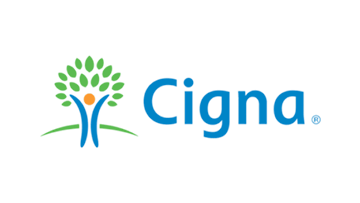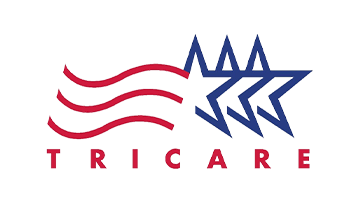Visit Us
Get Directions
When struggling with both mental health and substance use disorders, finding the right support is crucial. At Benchmark Transitions, we specialize in providing comprehensive, dual-diagnosis care at our residential treatment center near San Bernardino, California. We aim to help individuals achieve lasting recovery through evidence-based therapies, holistic approaches, and supportive community resources.
Dual diagnosis refers to the co-occurrence of a mental health disorder and a substance use disorder. Conditions such as depression, anxiety, PTSD, or bipolar disorder often accompany addiction, and each condition can exacerbate the other if left untreated. Dual diagnosis treatment addresses both mental health and substance use to foster holistic healing.
Treating only one aspect of dual diagnosis risks relapse and continued struggles with untreated mental health symptoms. Benchmark Transitions’ dual diagnosis program is designed to treat both conditions in tandem, offering clients the best possible chance at recovery and long-term well-being.
At Benchmark Transitions, we offer a comprehensive approach to recovery that combines medical and clinical support with holistic healing methods. Our team of licensed therapists and medical professionals provides personalized care, including detox, therapy, medication management, and life skills training, to help clients address the underlying causes of addiction and mental health challenges.
To enhance traditional therapies, we integrate holistic options that support the body and mind’s natural healing process. These include:
Located near the San Bernardino mountains, we proudly offer nature-based activities and animal engagement as part of our comprehensive healing journey in California.
A comfortable, supportive environment is essential for a successful recovery journey. Our facilities are designed to provide a serene, structured setting where clients can focus entirely on their healing, free from outside distractions.
With amenities catering to physical and emotional well-being, Benchmark Transitions strives to make every client’s experience as welcoming and comfortable as possible.

We understand the importance of feeling at home in a treatment environment. Our accommodations include private and semi-private rooms to ensure clients feel safe and supported during their stay. For those seeking specific room arrangements, we encourage contacting our team for details on available options so we can best address each individual’s needs and preferences.

Healthy, balanced meals are a vital component of recovery. At Benchmark Transitions, we provide nutritious meals prepared on-site to nourish both body and mind. Our meals are crafted to support clients’ physical health and are designed to fuel the healing process. Nutritional support is available as part of our holistic approach, helping clients build healthy habits for long-term wellness.

Physical activity and relaxation are integral to a balanced recovery routine. Our facilities feature lounges, outdoor relaxation spaces, and fitness areas where clients can unwind, connect with others, or self-reflect. For those who benefit from regular physical activity, our on-site fitness spaces are designed to promote mental and physical well-being as part of our holistic care approach.

Some of our residences offer pool access, providing clients an additional way to relax and unwind in a safe, therapeutic setting. Swimming and other water-based activities can be calming and therapeutic, supporting mental and physical health. To learn more about the amenities available at specific residences, we encourage prospective clients and families to reach out for details.
If you or a loved one is struggling with substance use or mental health issues, contact Benchmark Transitions today to learn more about how our residential dual diagnosis treatment program can support your recovery.
Recovery doesn’t end when residential treatment is completed. At Benchmark Transitions, we understand the importance of ongoing support as clients transition back to daily life. Our programs are designed to provide the guidance and structure needed to maintain progress, build resilience, and create a sustainable path to wellness. Our aftercare and continuing care model of support includes:
Our Partial Hospitalization Program offers intensive care for clients who require structured support but do not need 24-hour residential care. PHP provides daily treatment sessions and therapies, allowing clients to continue progressing in their recovery while beginning to reintegrate into their daily lives.
For clients who have completed residential treatment but still need structured support, our IOP provides a flexible treatment option that allows clients to practice recovery skills while receiving continued support. This program offers a step-down level of care, helping clients gradually adjust to more independence while remaining connected to therapeutic resources.
Benchmark Transitions offers a transitional living program, giving clients the chance to gradually reintegrate into everyday life with the ongoing support of our team. With a focus on creating stability, this program promotes personal growth through life skills training, community support, and regular check-ins to maintain progress.
Successful recovery requires planning for the future. We work with clients to develop an aftercare plan, connect them with local resources, and provide strategies for staying on the path to wellness. Our team collaborates closely with each client to design a personalized plan that supports their long-term recovery goals.
Selecting the right location for treatment can significantly impact the recovery journey. At Benchmark Transitions in San Bernardino, we provide a supportive, structured environment that helps individuals distance themselves from past influences, immerse in a new community, and embrace lasting change. Here’s how our California location offers unique benefits for a successful, sustained recovery:
Our Southern California facility allows clients to put physical and emotional distance between themselves and the people, places, or situations associated with past substance use.
This fresh start is often essential for breaking cycles of addiction, enabling individuals to focus entirely on their healing journey without familiar triggers.
Traveling to Benchmark Transitions facilities in California can increase commitment to completing the program. Being in a new, dedicated recovery environment encourages clients to fully engage with each stage of treatment without the temptations or distractions that may exist closer to home.
This geographic change can help clients remain focused on their goals and build momentum for lasting change.


In California, clients can create a new support network centered around shared recovery goals. At Benchmark Transitions, clients connect with others on a similar path, forming lasting friendships and a support community.
This peer network, nurtured in a safe and supportive space, becomes invaluable in maintaining sobriety during and after treatment.
Benchmark Transitions provides a full continuum of care, from detox and residential treatment to intensive outpatient programs and sober living.
For those who come from out of state, continuing with sober living in California offers structure and support after residential care. Our sober living program reinforces the skills learned in treatment, helping clients transition smoothly back to daily life with confidence and stability.
If you or a loved one are seeking residential treatment near San Bernardino, Benchmark Transitions is here to help. Our dual-diagnosis residential program offers a comprehensive approach to mental health and substance use treatment, providing a safe space for clients to recover, heal, and rebuild.
Contact us today to learn more about our programs or to begin the admissions process.
Benchmark Transitions works with all major insurance companies and is pleased to be an In Network provider with Aetna, Anthem Blue Cross (accepting most BCBS Blue Card plans), First Health, Kaiser Permanente of Southern California, MHN, TriCare West and Quantum Health.






Eddie is a licensed Marriage and Family Therapist (LMFT) and Certified Drug and Alcohol Counselor with over 13 years of sobriety. His academic journey began at East Los Angeles College, where he obtained his certification in Drug and Alcohol Counseling, and continued to Antioch University Los Angeles, where he earned a Master’s degree in Clinical Psychology, specializing in addiction. Certified with both CCAPP and CAADE, Eddie employs a multi-modal approach in his practice, including DBT, CBT, and solution-focused therapy, to address addiction and co-occurring mental health disorders.
Meet Eddie